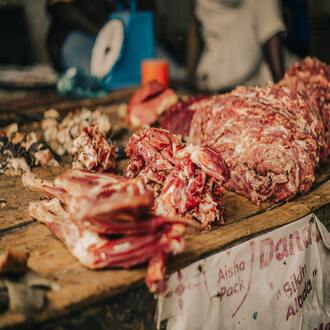Transcription Keto adaptation
Food is the basis for many of the natural processes that occur in our bodies. From the development of your body to the sources from which you get the energy you need to wake up every morning, it is intrinsically linked to the food you eat every day.
That said, it makes sense that any changes you make in the way you eat will have effects on your body. These effects often, although they may be beneficial in the long term, in a short period of time can considerably affect your lifestyle and your mood in general, leading to unpleasant consequences during a certain period of adaptation.
What is Kito adaptation?
This concept arises to name the period of adaptation since you change from a diet rich in carbohydrates to a low carbohydrate diet. It is perhaps one of the most radical dietary changes that exist, because carbohydrates serve as a natural source of energy for your body, and stopping ingesting them will mean a change from this source of energy for another. This period can be complex, and there are certain natural reactions of your body that you should be aware of before going from one diet to another.
Reactions
The most common reaction to a change from a carbohydrate-rich diet to a non-carbohydrate diet is a feeling of lack of energy and a feeling of being low in energy. It is often compared to a flu, where your body feels faint and tired, making any physical activity extremely difficult.
Other effects associated with this are dizziness, severe headache, fatigue and muscle fatigue. In general, it is like being sick, which is why some people call it Kito's flu.
Why does this happen?
This happens because of the state of ketosis to which we induce our body when we decide to stop providing carbohydrates, it is a temporary metabolic process, but it usually has very marked effects on the energy of our body. This is understandable, because our body must stop using its natural source of energy and replace it with another one such as fat. This requires a period of adaptation where the effects described above are manifested.
What can we do?
The first thing you must understand is that this is an adaptation period, it is temporary, and these effects, although annoying, will pass with the days. However, there are certain things you can do to lessen your body's discomfort.
Sodium, magnesium and potassium will help with the discomfort, increasing the amount of water you drink is enough to provide more electrolytes to your body.
Meat-based broths such as beef are very useful to contribute to the hydration of your body.
If you manage to maintain high levels of hydration in your body, these discomforts will be significantly reduced, there are people who focus only on drinking plenty of water during the first few days and manage to overcome this period without any setback.
Adapted ketosis
As we have already mentioned, this temporary period of discomfort is called Kito adaptation, which is not the same as being in adaptive ketosis. During the adaptation period your body is discovering new sources of energy, learning to deal with them and adapting to their effects.
Once this period elapses you will enter a state of adapting ketosis. Adaptive ketosis is when your body uses fat as a source of energy, so that it no longer needs carbohydrates from you to carry out its vital functions normally. It is here when you will begin to notice the benefits of this diet and the discomforts that we have mentioned will have completely disappeared.
Knowing what you will face and having the tools for it, your chances of successfully completing this adaptation period and changing your eating style in a sustainable way increase.
adaptation keto


![Keto and carnivorous diet [relationship]](/images/postDuplicados/Keto_and_carnivorous_diet_relationship.webp)

